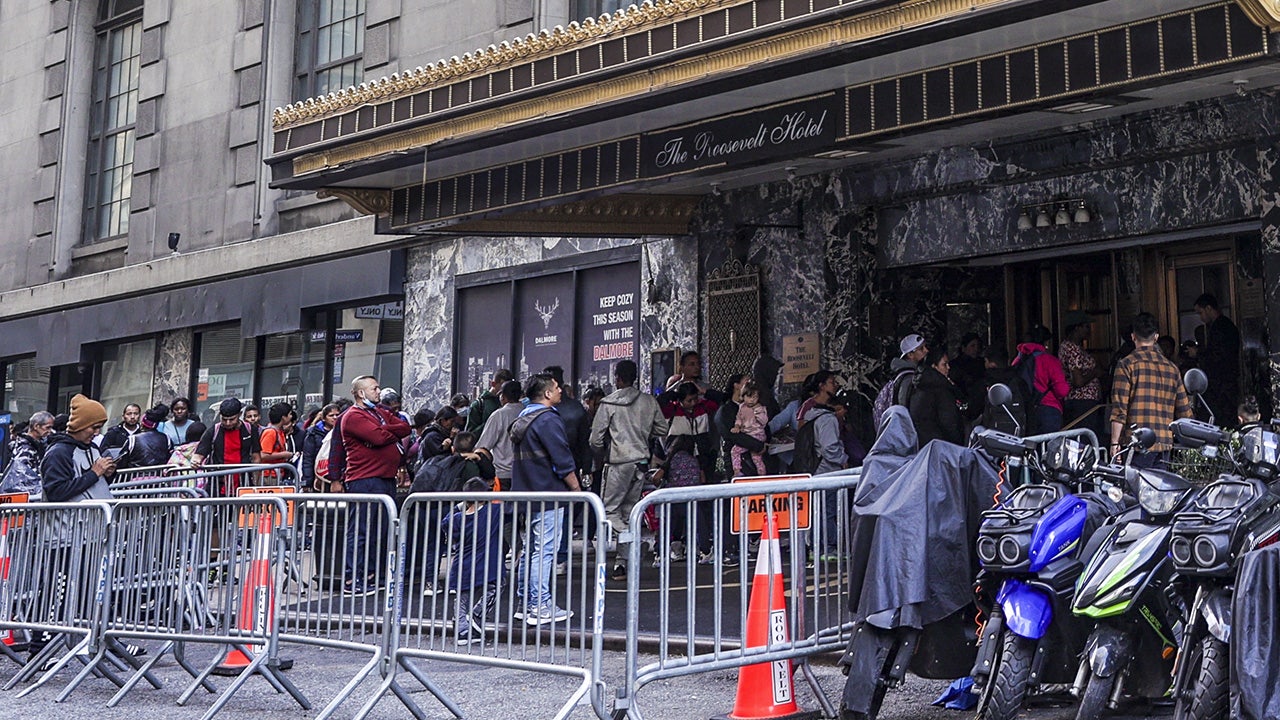Afternoon summary
- Boris Johnson has refused to rule out suspending parliament for a second time. (See 5.53pm.) He was speaking as a three-day supreme court hearing held to determine whether the current suspension (prorogation) is lawful came to an end. Lady Hale, president of the court, said it hopes to publish a decision early next week. In the final session Lord Pannick QC, representing Gina Miller, said that if the government lost parliament should reconvene next week, with the Speaker and Lord Speaker summoning MPs and peers back to work. See 4.57pm for a full summary of the day’s events in court.
- Irish premier Leo Varadkar says he will try to get a deal on Brexit when he meets Boris Johnson in New York next week. “We were in touch today. I’m going to meet him next week in New York and try to get a deal,” he said. The leaders will both be attending the UN Climate Action Summit.
That’s all from me for today.
Thanks for the comments.
Boris Johnson refuses to rule out suspending parliament again
Speaking to reporters on his visit to Wiltshire, Boris Johnson refused to rule out proroguing parliament a second time if he lost the supreme court case. Asked to rule out this option, he replied:
I have the greatest respect for the judiciary in this country. The best thing I can say at the moment whilst their deliberations are continuing is that obviously I agree very much with the master of the rolls and the lord chief justice and others who found in our favour the other day. I will wait to see what transpires.
Johnson also claimed that the government was making progress in the Brexit talks. He told reporters:
I don’t want to exaggerate the progress that we are making, but we are making progress …
You heard Jean-Claude Juncker yesterday say that he doesn’t have any emotional attachment to the backstop. Now that is progress – they weren’t saying that a month ago.
But let’s see where we get. It’s vital, whatever happens, that we prepare for no deal.
Boris Johnson has told British troops being deployed to Mali that joining a peacekeeping mission in the area was a “good idea” in the hope that the French would be “nice to us”. As the Press Association reports, Johnson was meeting with soldiers from the British Army at the Salisbury Plain training zone in Wiltshire, to see how military spending by the government was being implemented.
After learning some were to be deployed to Mali as part of efforts by the United Nations in the African country, Johnson referred to the French President Emmanuel Macron, the Press Association reports. “Mali, that was the promise we made to the French,” Johnson said.
It was a very good idea in the hope that they would be nice to us … We’re waiting to see how that works out, Monsieur Macron.

From my colleague Jennifer Rankin
Three British ‘non-papers’ have been sent to Michel Barnier’s team: food-safety, animal and plant health (SPS), customs + manufactured goods.
EU diplomats not optimistic about breakthrough that has eluded everyone for two years.
— Jennifer Rankin (@JenniferMerode) September 19, 2019
Scottish government abandons ‘named person’ scheme

Severin Carrell
The Scottish government has scrapped one of its headline policies, its controversial “named person” scheme, only a few days after bowing to opposition demands for an inquiry into two botched hospital projects.
Its sharp reversals in two key areas on which the Scottish National party government was refusing to budge until now suggests the SNP is shoring up its policy programme in preparation for a general election.
The named person scheme, a programme where every child had a designated adult such as a headteacher to safeguard their welfare, has been dubbed a “snooper’s charter” by critics, partly since families might have no idea they were under scrutiny.
The Scottish government went all the way to the UK supreme court to defend the policy, where judges said its aim was benign but it breached the right to privacy and family life under the European convention on human rights.
It was due to be introduced three years ago. John Swinney, the education secretary, told Holyrood he had now scrapped it entirely.
Two days ago, Jeane Freeman, the health secretary, announced an independent public inquiry into the handling of contracts to build the Queen Elizabeth super-hospital in Glasgow, where two children died earlier this year, and the new Royal Hospital for Sick Children, which will open several years late next year.
With both measures, the temporary pain of a climbdown neutralises two potentially damaging lines of opposition attack in an election.
Supreme court prorogation hearing – Summary
Here are the main points from today’s supreme court hearing in the case that will determine whether or not Boris Johnson’s decision to prorogue parliament for five weeks was lawful. Today was the last day of a three-day hearing. You can read Tuesday’s highlights here, and Wednesday’s highlights here and here.
- Lady Hale, president of the court, has said the court hopes to publish its decision “early next week”. As the case concluded, Hale said: “We hope to be able to publish our decision early next week.” That implies that the court will produce a full written judgment next week – rather than a preliminary decision, with reasons to follow. Her thinking may have been influenced by the knowledge that, if the court were to find against the government, a lot would depend on exactly what it said about what should happen next. This is not at all straightforward because …
- Boris Johnson has signalled that, even if he loses the case, he does not want to reconvene parliament before 14 October – which is when prorogation was originally due to end. In a document submitted to the court (pdf), the government has set out three options as to what might happen if Johnson were to lose. It says one option would be for Johnson to make a fresh, lawful prorogation decision, which could also delay the return of parliament until 14 October. The document acknowledges that the court order Johnson to get parliament reconvened sooner. But, in a clear hint that it wants the court to reject this option, it says that this would have “very serious practical consequences” that would, it implies, inconvenience the Queen and disrupt the security arrangements being put in place for 14 October. The document says:
A Queen’s speech, and the state opening of parliament which accompanies it, is a significant political, constitutional and ceremonial occasion, which ordinarily involves the sovereign attending in person. As the court will be well aware, the proper preparations for a Queen’s speech are a matter of thoroughgoing importance, including in relation to the content of that speech. Extensive arrangements would have to be made, including as to security, to enable this to occur. These considerations lead to the need for any order that the court makes, if necessary, to allow for these steps relating to the earlier meeting of parliament to occur in an orderly fashion.
- Lord Pannick QC, the lawyer representing Gina Miller, has told the court that if it decides prorogation was unlawful, parliament should reconvene next week. He suggested that the Speaker, John Bercow, and the Lord Speaker, Lord Fowler (Bercow’s equivalent in the House of Lords) could decide to recall parliament themselves. (See 3.08pm.) Several judges questioned whether that process would be legally watertight. Their comments were taken by some observers as a sign that the court is minded to find against the government. The questions also reflect the fact that there is some uncertainty as to what a declaration that prorogation was unlawful would actually mean, and whether it would amount to saying that prorogation never happened and parliament remained in session anyway. The government argues that, if the court rules prorogation was unlawful, it would be up to the PM to reconvene parliament, by making a request to the Queen under the Meeting of Parliament Act 1797.
- Lord Keen, the advocate general for Scotland who was representing the government, has told the court that it is not equipped to decide on whether prorogation was right or wrong. This was a political matter, not a matter for the courts, he said. It was “forbidden territory” for the court, he said. (See 2.17pm.) He went on:
In my respectful submission, the applicants and the petitioners are inviting the court into forbidden territory and into what is essentially a minefield, an ill-defined minefield that the courts are not – with the greatest of respect – properly equipped to deal with.
- Lady Hale, president of the supreme court, has stressed that the court is not deciding when or how Brexit might happen. In her final remarks, she said:
I must repeat that this case is not about when and on what terms the United Kingdom leaves the European Union. The result of this case will not determine that. We are solely concerned with the lawfulness of the prime minister’s decision to advise Her Majesty to prorogue parliament on the dates in question.

Lisa O’Carroll
The chancellor, Sajid Javid, has been in Dublin for the third meeting with his Irish counterpart, Paschal Donohoe, since he became chancellor eight weeks ago.
It demonstrates that a direct channel of communication has been opened at a senior level in both governments despite the Brexit impasse.
Javid, who pledged to throw millions of pounds at the border issue during the Tory party leadership campaign, and Donohoe both reiterated the importance of maintaining good Anglo-Irish relations irrespective of the Brexit outcome. Javid said:
Whatever happens next year regardless of Brexit, it is essential that not only we maintain the strength of our relationship between our two great countries but we find ways to enhance that.

Gina Miller left the supreme court to cheers and boos from the large crowd waiting outside the court building. As the Press Association reports, a small group of pro-Brexit protesters shouted “shame on you” and “traitor” as she got into a waiting car.


Here are three lawyers who regularly tweet who all think it is looking bad for the government in the supreme court case.
Pannick is a cross bench peer as well as a QC. They are now hearing his submission with the weight of a parliamentarian behind it – as to the right remedy.
I’m calling this for the Claimants. I think it’s over.— Dinah Rose QC (@DinahRoseQC) September 19, 2019
This is a now *very* detailed discussion of remedies
Government lawyers will be squirming
Pannick also providing a practical way forward for court and parliament to sort problem out speedily, if Supreme Court goes against government
— David Allen Green (@davidallengreen) September 19, 2019
From Joshua Rozenberg, the legal commentator
It looks as if Lady Hale hopes to produce a reasonably complete judgment over the weekend representing the view of the court — or of a majority if they are split. Individual sections could be written by different justices. Much better than a bald decision with reasons to follow.
— Joshua Rozenberg (@JoshuaRozenberg) September 19, 2019
Joanna Cherry says she would like the court to be as clear as possible about what should happen next if it finds against the government. She said parliament should sit again as soon as possible.
At the moment parliament is not due to reconvene until three weeks on Monday – 14 October.
If parliament does return next week, that would clash with the Labour party conference, which starts this weekend and runs until Wednesday, and with the Conservative party conference, which starts next weekend and runs until Wednesday 2 October.
It is normal for parliament to have a recess lasting three weeks in the autumn to allow time for the Lib Dem, Labour and Conservative conferences. This has always been a point of contention with the SNP, who always hold their conference a bit later in the autumn and who do not get allocated a recess to ensure that their MPs don’t have to be in two places at the same time.
Joanna Cherry, the SNP MP who launched the legal challenge in Scotland, has just told BBC News that she was “very encouraged” by the long discussion about remedies that the court had a few minutes ago, at the end of the hearing. (See 3.08pm and 3.11pm.) She says she is “cautiously optimistic”.
The assumption is that the judges would not be taking an interest in the logistics of what might happen if they find against the government unless there is a good chance that they will.
Supreme court hopes to rule on whether prorogation lawful ‘early next week’, says Lady Hale
Lady Hale, president of the court, thanks the court staff and everyone else involved in the case.
She stresses what she said at the opening of the case – that this hearing will not decide whether or how the UK leaves the EU.
She says the court hopes to be able to publish its decision “early next week”.
And that’s it.
I will post a summary shortly.














.png?itok=SPEjT6FZ)





Discussion about this post